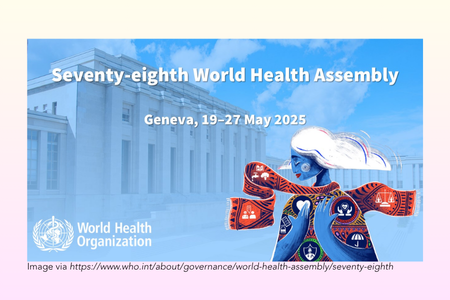Pt. 1- Nourishing a Warming World: Climate Change and Global Nutrition

Part 1: The cost of inaction on our food systems and health
Climate disasters are increasingly disrupting our food systems, affecting what we eat, how we eat, and the nutritional quality of our food. While we used to view climate and hunger as separate issues, growing concerns over food security, crop shortages and malnutrition across the globe have shed light on the interplay between the two problems. Addressing these challenges requires international collaboration, research and effective policies to strengthen food’s resilience against climate change.
How Climate Change Affects the Food Crisis
Across the globe, increased temperatures, changing precipitation patterns, and extreme weather events are disrupting agricultural productivity and food security. According to the Food and Agriculture Organization (FAO), global agricultural productivity has already declined by 21% due to climate change since the 1960s.
Furthermore, a 2°C rise in global temperatures is projected to reduce the yields of staple crops like wheat, rice, and maize by up to 25%, which will significantly impact global food security. Exacerbated by increased temperatures, erratic rainfall, and frequent droughts, soils are degrading and rendering farmlands bare, lowering food supplies and amplifying hunger. Food insecurity in one region can trigger international issues like migration, supply chain and trade disruptions, and conflict, creating compounded health and social issues.
Yet, there is a causal link between climate and food; agriculture and other food systems–related activities are estimated to contribute around one-third of greenhouse gas emissions. Food systems require extensive land usage and energy, pumping carbon dioxide and methane pollutants into our atmospheres and driving global warming. Global food consumption alone has been estimated to add nearly 1 °C to warming by 2100. To find solutions to fortify our food systems against increasing temperatures, we must consider the cause-and-effect of the relationship.
Climate Change and Nutrition
The nutritional quality of food is intrinsically linked to the conditions in which it is grown. Climate change - with its impacts on agriculture, oceans, pollinators and greenhouse gasses (GHGs) - decreases food diversity and quality, bringing significant consequences to global nutrition. Alarmingly, it has been estimated that humans will experience a 10% decrease in years of healthy life due to climate change-induced malnutrition by 2050.
A study found that elevated CO2 levels could lessen the global availability of nutrients by 19.5% for protein, 13.6% for iron, and 14.6% for zinc by 2050. This reduction in nutrient density poses a significant threat to global nutrition of the future, especially in regions where these staples form a major part of the diet. In the present, the prevalence of anemia in India has been associated with climate-induced food insecurity.
Climate change negatively impacts nutrition through indirect means as well; increasing disease prevalence and burden, creating barriers to accessing health systems, and changing the geographic patterns of illness. With impacts already being observed, changing our food systems to our climate is all the more necessary.
As climate change continues to reshape our world, the intersection between our food systems and the environment becomes increasingly evident. The profound impacts on agricultural productivity, food security, and nutrition (including iron deficiency) highlight the urgent need for transformative approaches. By fostering global collaboration, advancing research, and implementing sustainable policies, we can build food systems that not only withstand the challenges of a warming world but also contribute to mitigating climate change. Addressing these intertwined issues is essential for ensuring that future generations have access to nutritious, diverse, and sustainable food sources. The time to act is now, as the choices we make today will determine the health and well-being of our planet and its people in the years to come.




